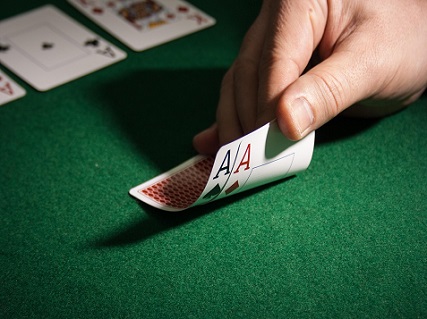Exploring the Art of Poker: Strategy and Skill
* Understanding the psychological aspects of poker can enhance game skills.
* Mathematical strategies and probability are crucial for informed decision-making.
* Reading opponents and adapting strategies are vital for success.
* Practicing restraint, discipline, and bankroll management strengthens play.
Poker is a multifaceted game that demands strategic thinking, psychology, and skill to adapt to changing situations. Mastering involves understanding core principles, managing odds, and crafting successful bluffs. Consistent success relies on refining techniques and staying ahead of the competition.
The Fascination with Poker
Poker, a timeless card game, captures the imagination with its blend of skill, psychology, and luck. This multifaceted game transforms ordinary evenings into intense competitions, blurring the lines between casual fun and strategic brainpower. It’s not just about winning the pot. Players engage in a unique dance of deception and revelation, where one’s facial tics become as scrutinized as the cards on the table. The diverse allure of the game is highlighted by the ability to play with custom poker card decks, adding personalization to each session. Whether you’re participating in friendly games at home or spectating at the grand stages of the World Series of Poker, where the stakes reach astronomical heights, the appeal remains universally compelling.
Mastering the Mind Game
In poker, every player is a potential mystery, a dilemma to decode. The game thrives on the silent psychological standoffs with every hand dealt. Anyone can learn to deal with a winning card, but true mastery involves understanding the intricacies of human behavior and the art of the bluff. With each opponent, there’s a new challenge: deciphering motives, predicting play styles, and executing misleading strategies without falling into their traps. As detailed in bluffing studies, convincing bluffs can secure as many victories as strong hands. This mental game of cat and mouse keeps players engaged, pushing them to read the subtleties of body language and betting patterns like a detective examines a crime scene for clues.
Mathematics in Poker
While the psychological elements add drama, a substantial part of poker’s allure is its dependency on mathematical rigor. Numbers, probabilities, and odds can underpin every decision made at the table. A successful player combines instinct with arithmetic precision, ensuring that every move—fold, call, or raise—is backed by solid mathematical rationale. Knowing the odds of landing the necessary card to complete a flush or the probability of an opponent holding a better hand aids in crafting a formidable strategy. This isn’t merely gambling; the calculated risk-taking branches beyond mere luck, elevating the experience into an intellectual challenge akin to chess.
Adapting to Opponents
Just as in life, poker demands adaptability to ever-changing circumstances and personalities. Each opponent you face is a puzzle characterized by unique habits, tactics, and psychological inclinations. Success involves understanding your style and responding to the various styles of those sitting across the table. This adaptation involves maintaining flexibility within your strategy and staying vigilant when certain play styles clash with or complement your own. A player who can seamlessly transition tactics—to replicate or counter the strengths and weaknesses of their opponents—often finds themselves at a distinct evolutionary advantage.
Discipline and Restraint
Beyond the excitement and flair lies the essential backbone of poker: discipline. Actual skill in poker isn’t just about reading others or calculating odds; it’s about instilling and maintaining a sense of restraint. An adept player knows when to pull back, how to prevent emotional responses from dictating play, and when a retreat will yield more strategic advantage in the long run. Discipline extends to your finances, or as poker pros say, “bankroll management,” preventing whims and emotions from eroding one’s play. Efficient bankroll management allows players to ride the privacy of variance without encountering catastrophic financial losses, ensuring the game’s longevity and pleasure.
Continuous Practice and Learning
Poker is akin to an ever-evolving educational journey, a continuous cycle of learning and adaptation. No matter how seasoned a player may be, the game continually offers fresh strategies, scenarios, and opponents to explore. The search for improvement and skill refinement becomes a lifetime endeavor, with each match serving as a lecture and each opponent as a knowledgeable professor. Enthusiasts develop their skills by revisiting previous games, dissecting missteps, and incorporating lessons into future strategies, ensuring perpetual growth and advancement.
